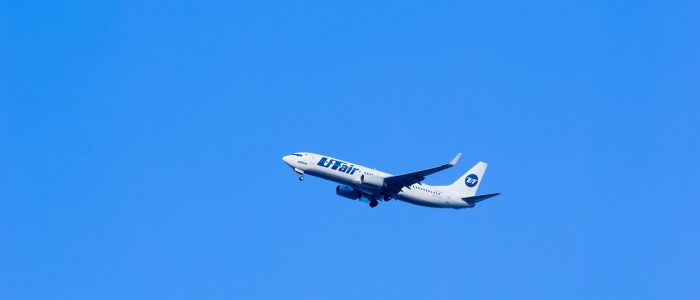Entry into force of the mandatory “no re-export” clause to Russia
At Augusta Abogados we have followed and reported on the most relevant aspects of the economic and financial sanctions imposed by the European Union on the Russian Federation and Belarus as a result of the war in Ukraine. As is well known, the regulations in this area prohibit the export or re-export of a whole range of products to these countries.
Amendment No. 26 to Regulation (EU) No 833/2014 concerning restrictive measures in view of Russia’s actions destabilizing the situation in Ukraine, adopted on 18 December 2023, introduced a new measure that from 20 March 2024.
As laid down in the new Article 12g of the Regulation, as of the above-mentioned date any agreement for the sale, supply, transfer or export of certain items to third countries must expressly include a clause prohibiting their re-exportation to Russia or their re-exportation for use in Russia. The aim of this provision is to combat circumvention of EU export bans and, more specifically, the situation where goods exported to third countries are re-exported to Russia. In addition, the contract will have to include “adequate remedies” in the event of non-compliance where counterparties breach such a ban.
While the Regulation does not impose any specific wording for such clauses, the European Commission has provided model wording for a prohibition clause, as well as proposed measures for the enforcement of such a prohibition clause, such as termination of the contract or payment of a penalty.
This obligation applies to the export of goods or technology listed in Annexes XI, XX and XXXV, which in summary comprise the following categories: (i) goods and technology suitable for use in aviation or space; (ii) jet fuels and fuel additives; (iii) firearms, parts and essential components thereof and ammunition listed in Annex I to Regulation (EU) No. 258/2012; and, (iv) goods listed in Annex XL of the Regulation known as common high priority items, being a long list of goods, including electronic integrated circuits, apparatus for the reception, conversion, emission and transmission or regeneration of voice, images and other data, radio navigational equipment, capacitors, processing units, static converters, plugs and sockets for a voltage not exceeding 1000 V, diodes, transistors with a dissipation capacity of less than 1 W, photosensitive semiconductor devices, rolling bearings, parts of aircraft, helicopters or unmanned aircraft, telescopic sights for weapons and other optical devices and instruments, instruments and apparatus for air or space navigation, units of automatic data-processing machines, and instruments for measuring or checking voltage, current, resistance or electrical power.
As can be seen, the obligations imposed by the Regulation affect the aviation and space industry very directly, as the products and technologies in Annex XI relate extensively to aircraft and spacecraft, as well as their parts and components. Annex XX refers to a wide range of products and fuel additives, which also happen to be the fuel for aircraft and spacecraft; and Annex XL includes a list of dual-use items and technology.
It will not be necessary to include the contractual clause described above when the export takes place with some of the partner countries listed in Annex VIII of the Regulation, which for the time being are Japan, United Kingdom, South Korea, Australia, Canada, New Zealand, Norway, and Switzerland.
The obligation to include the clause about “no re-exportation to Russia” depends on the date of conclusion of the agreement:
- Agreements concluded before 19 December 2023:
Contracts concluded before this date benefit from a transitional period of one year until 19 December 2024, or until the expiry of the contracts if this date is earlier. However, for any execution of these contracts after 20 December 2024, operators will have to amend the contract to include the “no re-export to Russia” clause.
- Agreements concluded on or after 19 December 2023:
Contracts concluded from 19 December 2023 onwards shall contain a mandatory “no exportation to Russia” clause from 20 March 2024 onwards.
Article 12g of the Regulation implies for practical purposes that exporters of products covered by the above-mentioned annexes must have in place the contractual clauses provided for in the Regulation and adequate due diligence procedures to ensure that their exports of goods are not diverted to Russia, as well as ex-post verification measures.
If a product exported from the EU to a third country is re-exported to Russia, the competent authorities may consider that the EU exporter has failed to exercise due diligence, and this constitutes a breach of the Regulation. If the EU exporter knowingly and intentionally omits such due diligence, he may be considered to be engaged in a circumvention scheme.
Many EU operators already include “no re-export” clauses in their contracts. However, Article 12g makes this practice a legal requirement for sensitive goods and is expected to act as a deterrent to non-EU operators redirecting EU-sanctioned goods to Russia, exposing them to contractual non-compliance.
In addition, in case of non-compliance with the re-exportation prohibition clause by the counterparty, exporters should report this as soon as possible to the competent authority of the Member State where they are resident or established. According to the EU, where Member States have not set up a specific whistleblowing system, exporters can use the EU’s generic whistleblowing tool anonymously (https://eusanctions.integrityline.com/).
____________
Sergi Giménez | Partner| Augusta Abogados
Laia Malet | Lawyer | Augusta Abogados



Comments are closed.